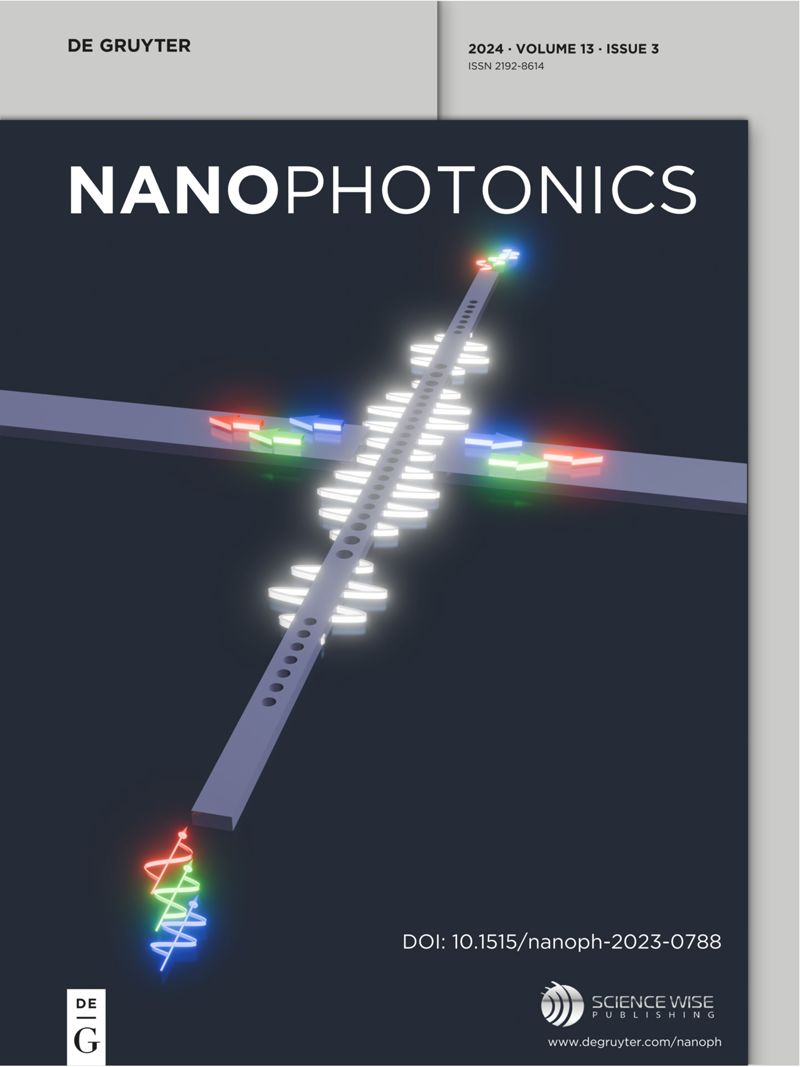Thermally tunable add-drop filter based on valley photonic crystals for optical communications
IF 6.6
2区 物理与天体物理
Q1 MATERIALS SCIENCE, MULTIDISCIPLINARY
引用次数: 0
Abstract
Valley photonic crystals (VPCs) provide an intriguing approach to suppress backscattering losses and enable robust transport of light against sharp bends, which could be utilized to realize low-loss and small-footprint devices for on-chip optical communications. However, there are few studies on how to achieve power-efficient tunable devices based on VPCs, which are essential for implementing basic functions such as optical switching and routing. Here, we propose and experimentally demonstrate a thermally tunable add-drop filter (ADF) based on VPCs operating at telecommunication wavelengths. By leveraging the topological protection of the edge state and the distinct property of negligible scattering at sharp bends, a small footprint of 17.4 × 28.2 μm基于山谷光子晶体的光通信热可调分插滤波器
谷光子晶体(VPC)提供了一种抑制背向散射损耗和实现光在急弯处稳健传输的有趣方法,可用于实现片上光通信的低损耗和小尺寸器件。然而,关于如何实现基于 VPC 的高能效可调器件的研究却很少,而这些器件对于实现光交换和路由等基本功能至关重要。在此,我们提出并通过实验演示了一种基于 VPC 的热可调谐分插滤波器 (ADF),可在电信波长上运行。利用边缘态的拓扑保护和在急弯处可忽略散射的独特特性,所提出的器件可实现 17.4 × 28.2 μm2 的小尺寸和 2.7 dB 的低插入损耗。设计了一个菱形微环谐振器来限制光线并增强其与微加热器产生的热场的相互作用,从而使输出信号从一个端口切换到另一个端口所需的功率相对较低,仅为 23.97 mW。基于带拓扑保护下的热可调 ADF,实现了稳健的数据传输,数据传输速率高达 132 Gb/s。我们的工作显示了利用热可调硅基 VPC 开发高性能拓扑光子器件的巨大潜力,这为在芯片上实现拓扑保护和可重新配置的高速数据链路提供了前所未有的机遇。
本文章由计算机程序翻译,如有差异,请以英文原文为准。
求助全文
约1分钟内获得全文
求助全文
来源期刊

Nanophotonics
NANOSCIENCE & NANOTECHNOLOGY-MATERIALS SCIENCE, MULTIDISCIPLINARY
CiteScore
13.50
自引率
6.70%
发文量
358
审稿时长
7 weeks
期刊介绍:
Nanophotonics, published in collaboration with Sciencewise, is a prestigious journal that showcases recent international research results, notable advancements in the field, and innovative applications. It is regarded as one of the leading publications in the realm of nanophotonics and encompasses a range of article types including research articles, selectively invited reviews, letters, and perspectives.
The journal specifically delves into the study of photon interaction with nano-structures, such as carbon nano-tubes, nano metal particles, nano crystals, semiconductor nano dots, photonic crystals, tissue, and DNA. It offers comprehensive coverage of the most up-to-date discoveries, making it an essential resource for physicists, engineers, and material scientists.
 求助内容:
求助内容: 应助结果提醒方式:
应助结果提醒方式:


